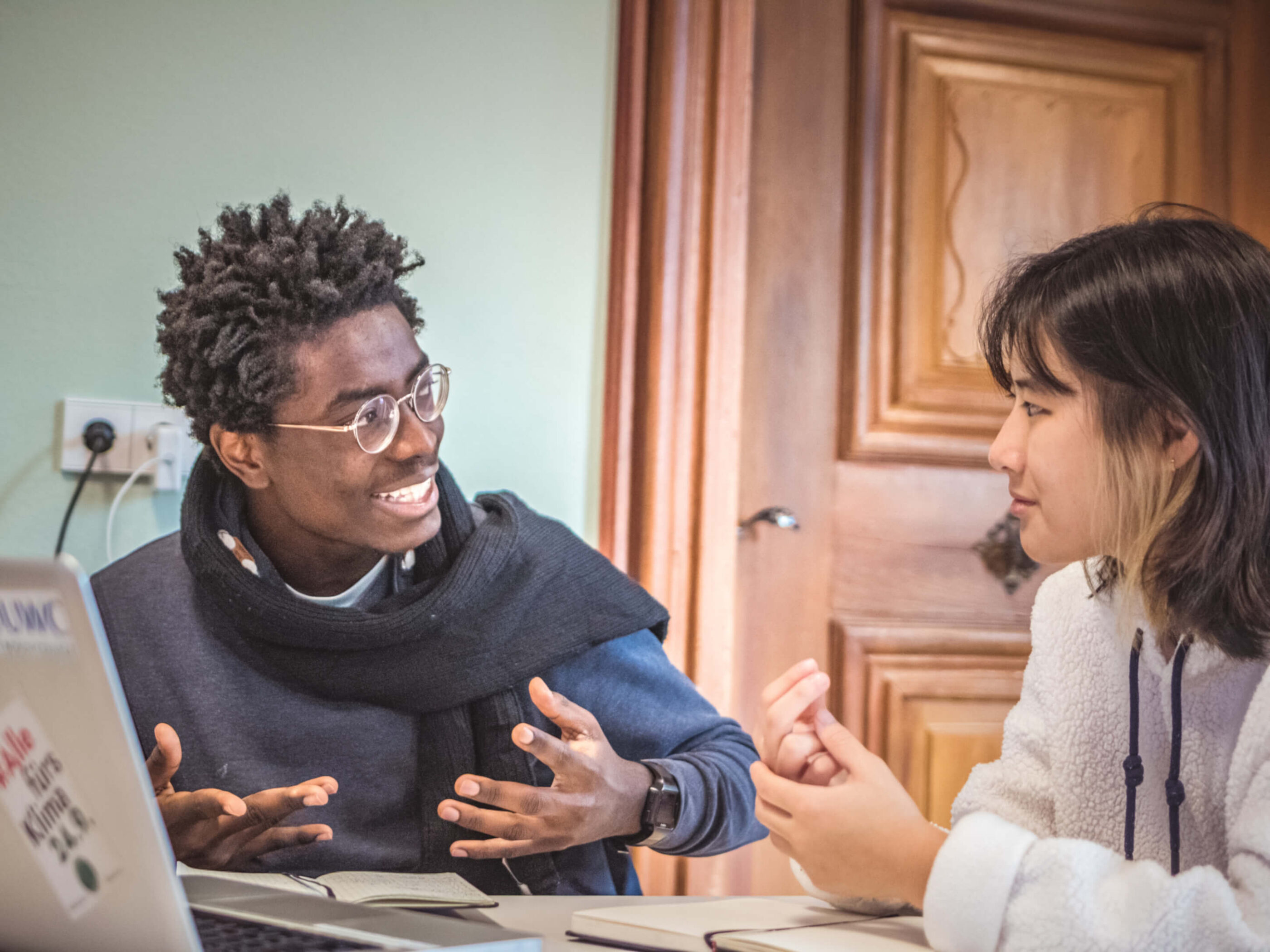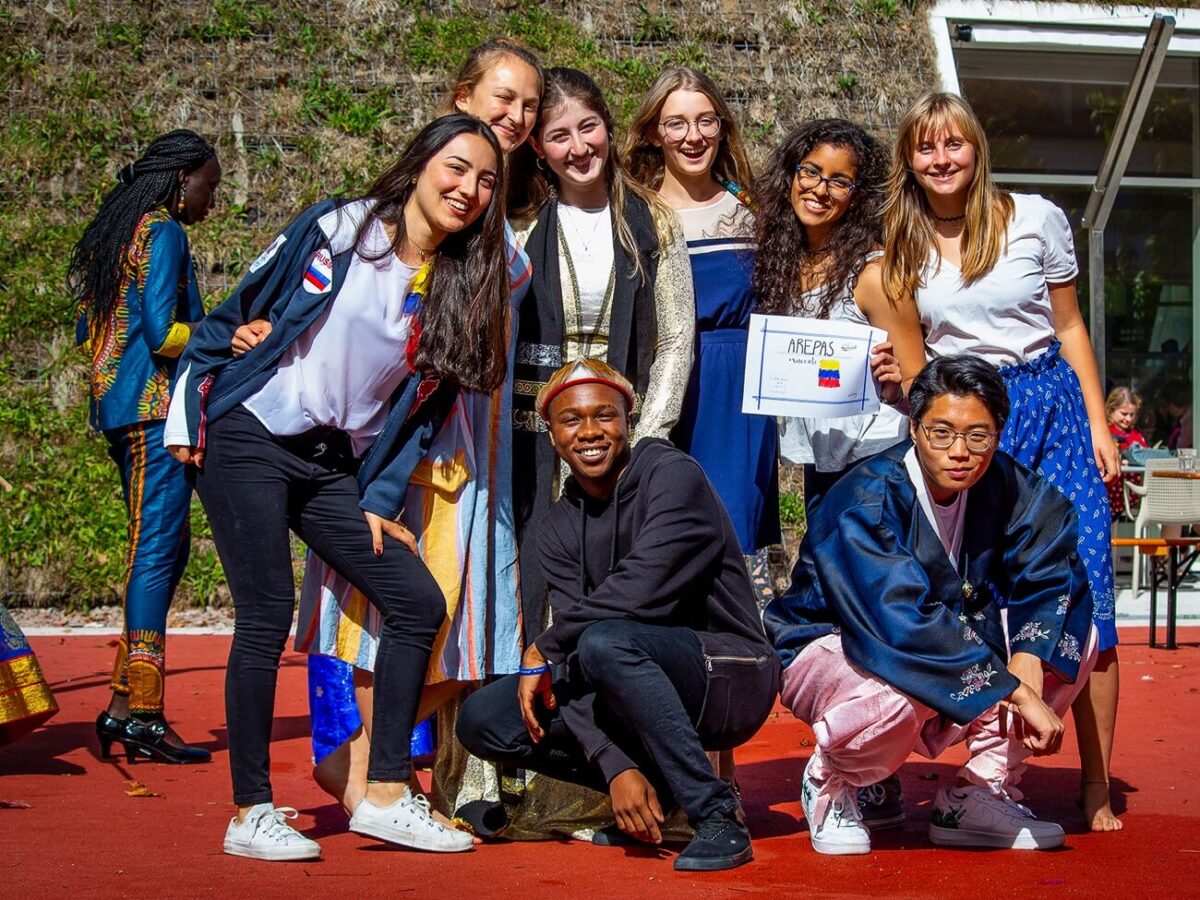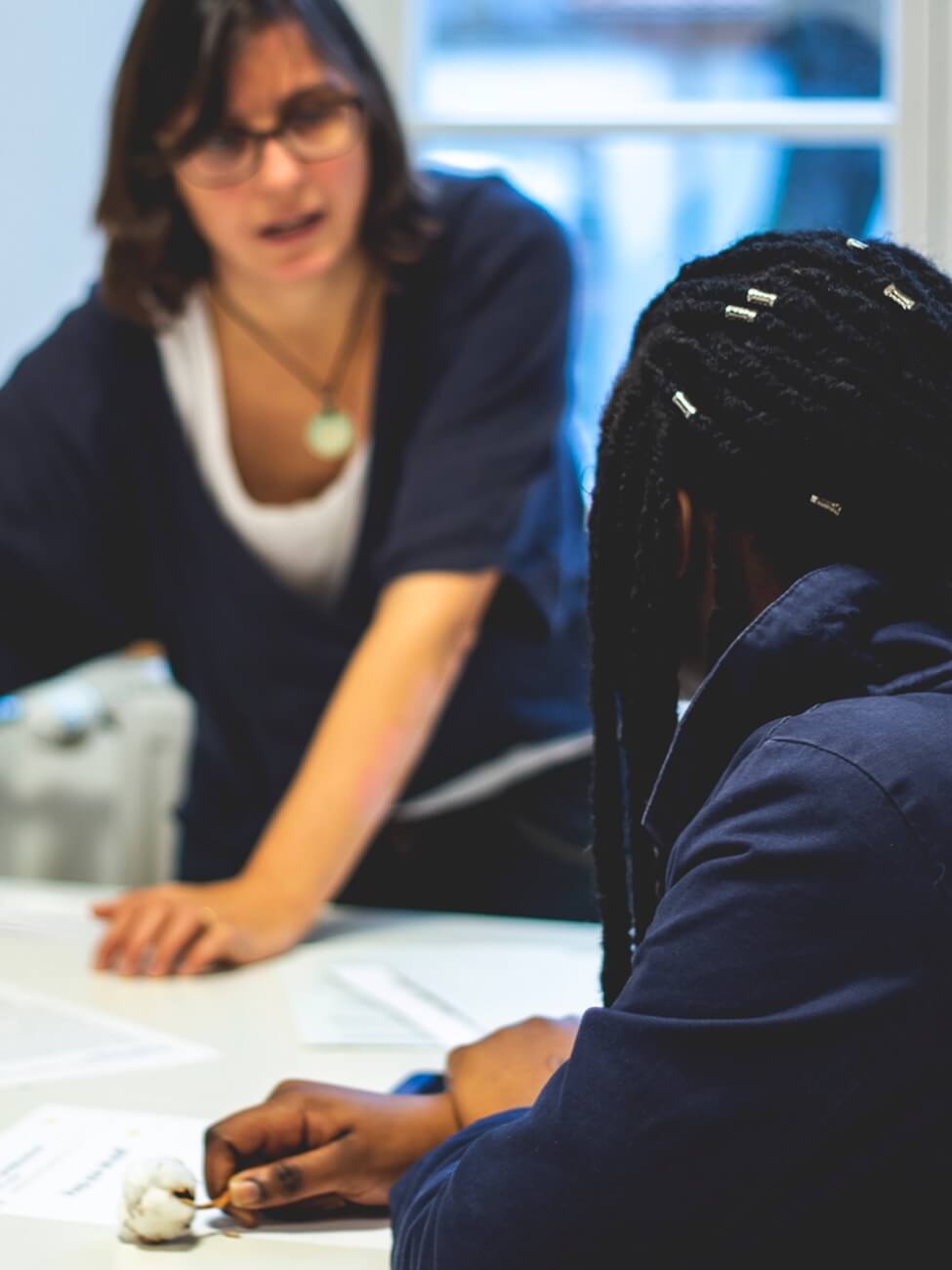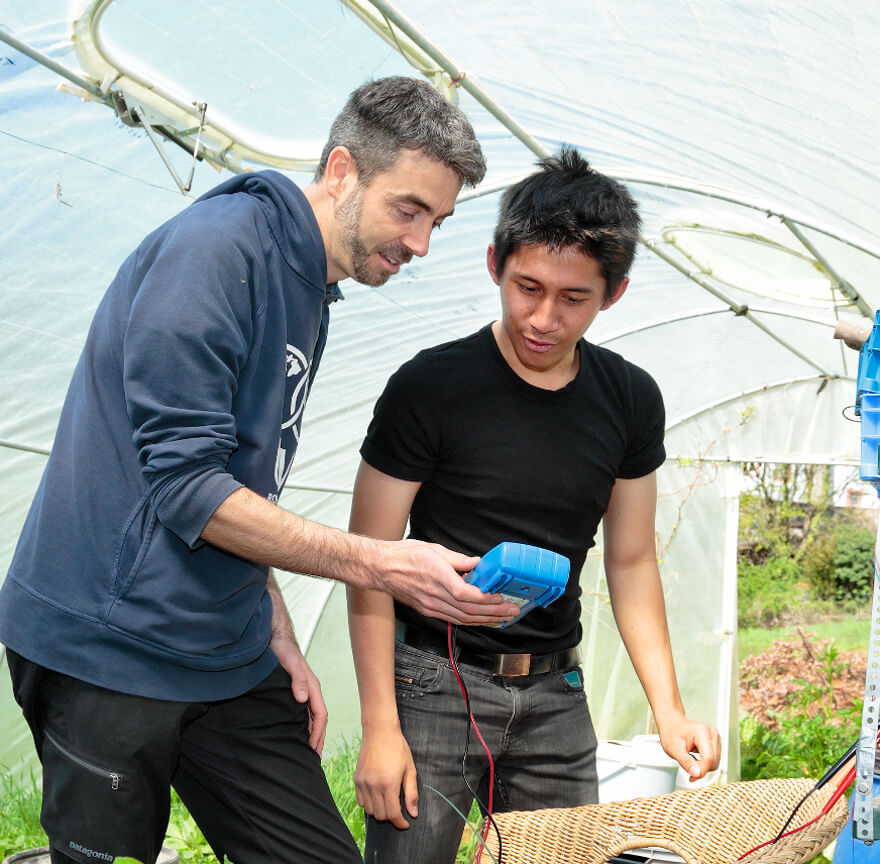The core of a UWC education: learning from and with each other

What does it look like when students from over 90 different countries attend the same school, have different levels of education and use different learning methods?
Diverse, committed and motivated
English is the language of instruction at our school, with around 60 other languages being spoken on campus. Some of our students already have a good command of English on arrival, others start from almost zero. Our learning and teaching methods embrace diversity in the classroom and encourage students to think critically, drive their own learning and become more culturally aware.

Diversity as a Catalyst
The heterogeneity of the students is seen as an opportunity at all UWC schools: Learner autonomy is promoted when the students themselves become teachers. Personal sense-making is created when young people begin to ask questions. A sense of community is formed through shared values – despite different backgrounds. At our school, students learn to engage with people in an increasingly globalized, rapidly changing world.

Holistic Education
Students complete the International Baccalaureate (IB Diploma), an internationally recognized qualification, within two years at the College. However, education at a UWC is much more than what is taught by the IB: based on the ideas of founder Kurt Hahn, holistic education is primarily intended to be transformative. Through intercultural exchange, young people learn to develop empathy for others and to overcome personal crises through reflection. They become aware of their own and others’ assumptions and learn to reflect on them – this learning involves a change in fundamental values, attitudes and actions.
This type of education encourages a balanced development of human potential in intellectual, moral, aesthetic, emotional, social, spiritual and physical terms.
UWC’s educational concept combines academic and extracurricular elements
The CAS (Creativity, Activity, Service) program specifically promotes the individual skills of each student and the handling of responsibility. There is a strong focus on social service: helping others, getting involved in the community, showing commitment. These are important elements in teaching young people responsibility and compassion.

If we want to empower our students to shape a sustainable future, we need to both inform and inspire them. Information about the challenges facing our planet is important. Students need to know what they are talking about and what actions will really make a difference, otherwise their actions will be ineffective and just make-believe. But just as important as this information is inspiring them – a love of nature, positive experiences with a sustainable lifestyle and the feeling that a better future is possible. Because hope is a stronger motivator than fear.
The topics of peace and sustainability are a central focus of the school
Addressed both in the curricula of the individual subjects and in extracurricular or additional events, they are part of the DNA of our school and the UWC movement and a reason to bring together so many people from different countries, cultures and religions: So that “they learn that a peaceful and sustainable world is possible and worth striving for, even in the face of great differences”, in the words of our Rector Dr. Helen White.
